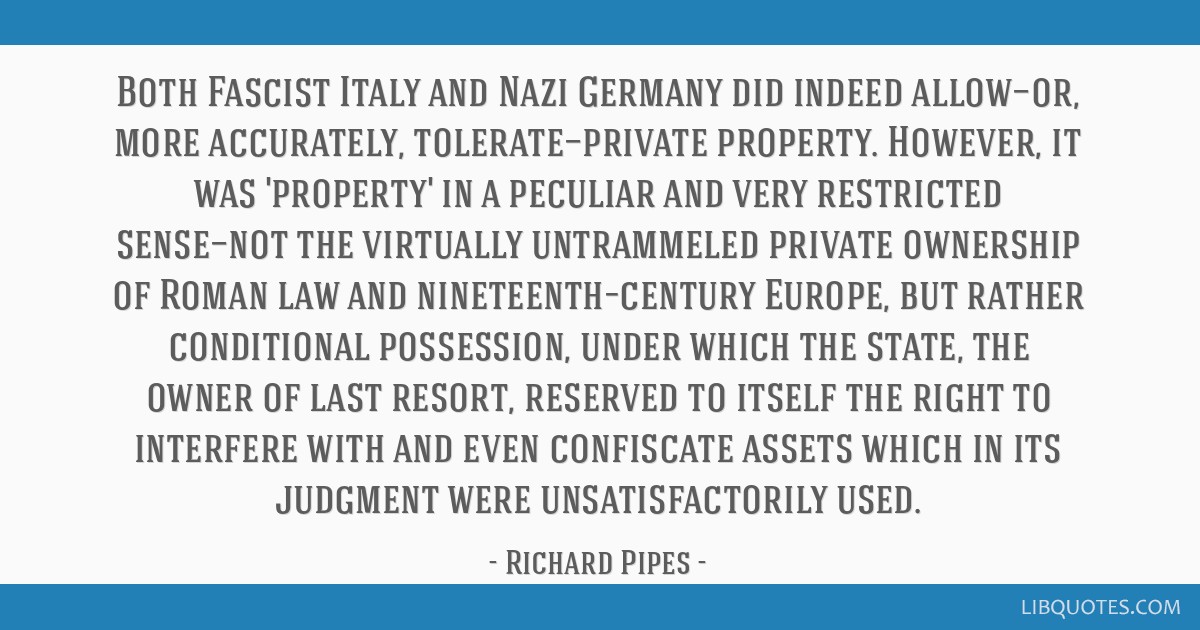Both Fascist Italy and Nazi Germany did indeed allow—or, more accurately, tolerate—private property. However, it was 'property' in a peculiar and very restricted sense—not the virtually untrammeled private ownership of Roman law and nineteenth–century Europe, but rather conditional possession, under which the state, the owner of last resort, reserved to itself the right to interfere with and even confiscate assets which in its judgment were unsatisfactorily used.
p. 218 - Property and Freedom (1999)























